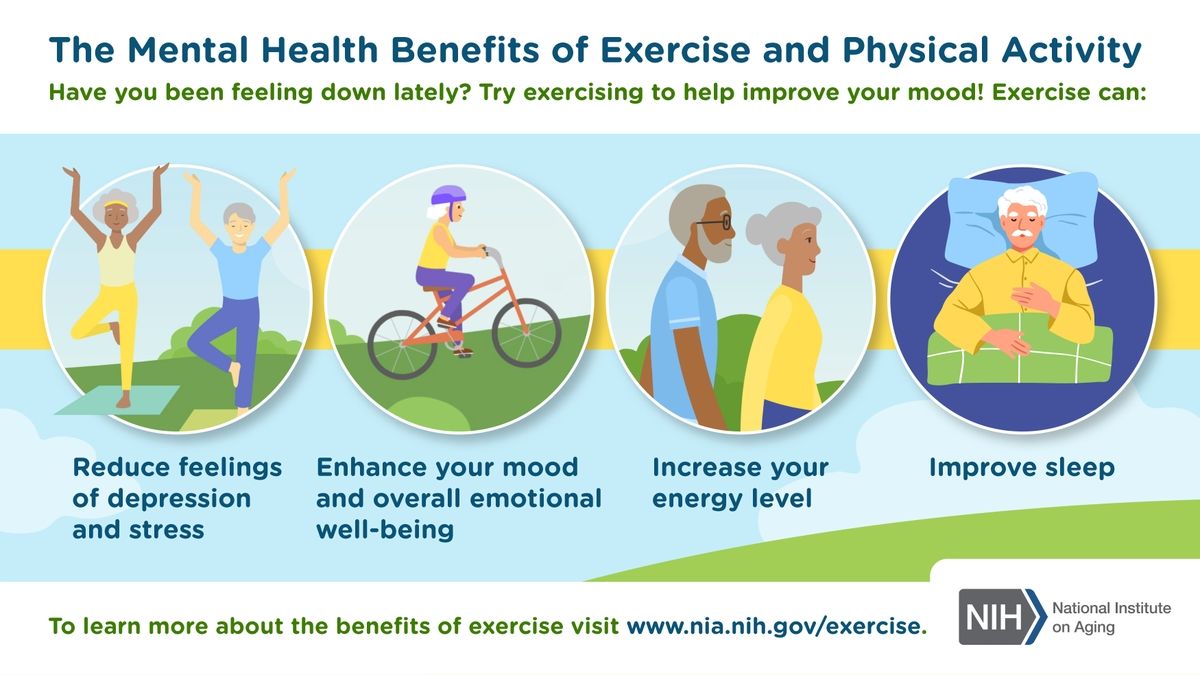1. The Link Between Physical Activity and Mental Health in Older Adults
2. The Risks of a Sedentary Lifestyle for Older Adults
3. Physical Activity and Cognitive Benefits in Aging
4. The Role of Walking in Improving Mental Health in Older Adults
5. Combining Exercise with Mindfulness for Mental Well-being
6. A Holistic Approach to Preventing Falls in Older Adults through Physical Activity
Recent studies have highlighted the strong link between physical activity and mental health in older adults. Engaging in just 10 minutes of exercise daily for five days a week has been shown to reduce the risk of generalized anxiety disorder. This emphasizes the importance of staying physically active as we age to promote mental well-being.
A sedentary lifestyle, on the other hand, poses significant risks for older adults, including higher chances of developing mental health issues like anxiety. Thankfully, opportunities for physical activity abound in communities like Richmond County, with programs like the LIFT initiative geared towards encouraging older adults to stay active.
Not only does physical activity benefit mental health, but it also plays a crucial role in maintaining cognitive function. Research has shown that regular exercise helps preserve cognitive function and may even lower the risk of Alzheimer’s disease. Recommendations suggest 150-300 minutes of moderate-intensity aerobic activity each week for optimal cognitive health.
Additionally, studies have highlighted the mental health benefits of regular walking, such as improved mood, cognition, and memory, and reduced risk of depression and dementia. Combining exercise with mindfulness practices may offer even greater benefits for mental well-being, although further research is needed in this area.
In the prevention of falls in older adults, physical exercise programs have been shown to be effective in reducing fall rates and improving overall function. The LiFE program, in particular, has demonstrated significant reductions in fall rates when implemented in group settings.
Overall, the importance of physical activity in promoting mental well-being and cognitive function in older adults cannot be overstated. Encouraging and supporting older adults to lead active, healthy lifestyles is crucial for maintaining their overall mental and physical health.
